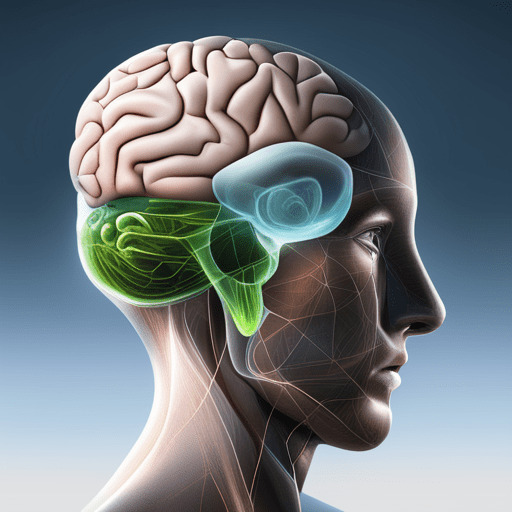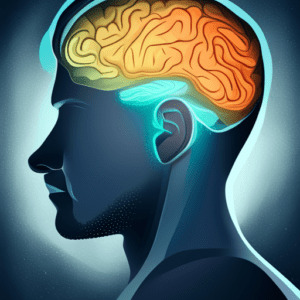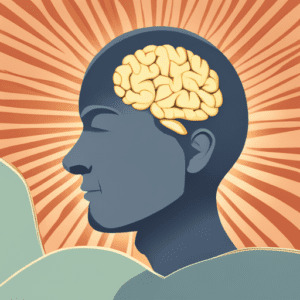#LearningAndMemory
Explore tagged Tumblr posts
Text
The Mysteries of Motivation: Deep Dive into the Brain's Role

Our ideas, feelings, and, most crucially, our motivations all originate in the human brain, a natural miracle. But what is it in the human brain that causes us to take action, strive, and succeed? This article explores the exciting issue of Motivation by delving into the intricate neurological systems that support it. We'll learn about the brain regions that play a part in Motivation, the chemicals that play a part in that process, and the effects that neurological illnesses may have on our drive. We'll also discuss where this field of Study is going and how we can tap into the brain's latent motivational powers.
Which Part of Your Brain is Involved in Your Motivation?

Which Part Of Your Brain Is Involved In Your Motivation? The Limbic System, the Source of All Drive The limbic system, or "emotional brain," is fundamental regarding our drive and Motivation. The hippocampus and the amygdala are the only parts of this intricate network that govern our reward and punishment systems. The limbic system is pivotal in memory formation and regulates our emotional lives. The emotional component of memory causes us to anticipate or fear certain occurrences in the future. The Function of the Basal Forebrain in Memory and Learning The basal forebrain is engaged in learning and memory and is a crucial component of Motivation. It aids in shaping future behavior by associating it with positive or negative outcomes. This brain region is also essential for maintaining focus, regulating wakefulness, and falling asleep. It's vital for sensory perception and free-willed movement because it supplies the cerebral cortex with acetylcholine.
How Neurotransmitters Like Dopamine Drive Behavior
Dopamine, the Heroin of the Reward System Dopamine is a neurotransmitter often known as the "feel-good chemical of the brain." When we experience pleasure, our brains produce dopamine, which reinforces and motivates us to pursue similar experiences in the future. Dopamine regulates the secretion of other hormones and is also involved in motor control. Regarding the motivational aspect of reward-motivated behavior, these dopamine pathways are crucial. The Nucleus Accumbens and the Ventral Tegmental Area Work Together to Process Rewards The nucleus accumbens and ventral tegmental area (VTA) are inseparable when processing rewards and inspiring action. The anticipation of a reward triggers the release of dopamine in these regions. The nucleus accumbens, among other brain regions, receives dopamine from the ventral tegmental area (VTA), which ultimately causes a sensation of reward or pleasure. This drives us to keep doing things that are rewarding in the first place. Dopamine's Effects on Mood and Reinforcement Learning Dopamine is also crucial in the formation of emotional responses and long-term memory. It reinforces existing synapses by reinforcing positive connections in the hippocampus (the brain's learning and memory hub). This step is essential for reward learning to take place, in which we learn to repeat actions that resulted in satisfying results in the past.
Which region of the brain is responsible for our desires and emotions?
Physiology of the Amygdala The Brain's Emotional Control Center Emotional processing relies heavily on the amygdala, a little almond-shaped structure in the brain. It influences our motives and emotions and plays a pivotal role in the fear and pleasure responses. The amygdala also helps choose which memories to keep and where in the brain to keep them. This metric considers the intensity of the felt impact of an inevitable occurrence. For example, if a person goes through an emotionally taxing experience, the amygdala directs them to file away their thoughts and feelings about that time. The Motivating Power of the Prefrontal Cortex The frontal lobe of the brain, known as the prefrontal cortex, is responsible for executive functions such as planning, decision-making, and social conduct. It's essential to our Motivation since it aids in weighing potential gains against costs and deciding how best to proceed. The prefrontal cortex also controls executive tasks, including time management, focus switching, detail recall, self-control, and incorporating previous experiences into current actions. One of the Brain's Most Important Reward and Motivation Centers Another important brain region involved in Motivation is the striatum in the basal ganglia. It's active when we're feeling driven to do something since it plays a role in the brain's reward processing system. In addition to its function in motor and movement planning, the striatum is also involved in decision-making, Motivation, reinforcement, and the perception of rewards.
Where Do You Find Your Drive? Frontal Lobe?
Motivation and Self-Control Rely on the Lateral Prefrontal Cortex. The frontal lobe's lateral prefrontal cortex has a role in self-control. A key component of Motivation, willpower allows us to rein in urges and make choices that support our long-term objectives. Working memory, cognitive flexibility, planning, inhibition, and abstract thinking depend on activity in this part of the brain. Implications of Frontal Lobe Development on Risk-Taking and Social Acceptance During this time, a lot of development occurs in the brain's frontal lobe. Teenagers are often highly driven by peer approval and may participate in dangerous activities to get it, which might impact Motivation throughout this development stage. The frontal lobe is also responsible for movement, problem-solving, spontaneity, memory, language, beginning new tasks, judging, resisting temptation, and engaging in social and sexual conduct.
Imbalances in the Brain's Reward System and Psychiatric Illness

Brain's Reward System The Lateral Habenula Is an Important Part of the Brain's Reward System The small brain region known as the lateral habenula is pivotal in the brain's reward system. Dysfunction in this region has been associated with mental diseases characterized by excessive aggressiveness, which is thought to encode punishment by suppressing dopamine release. The lateral habenula is engaged in more than only pain processing; it also plays a role in reproduction, eating, sleeping, stress management, and immune function. Damage to the Brain's Reward System as a Cause of Aggression Misdirected activation of the brain's reward system in response to aggressive social cues is one possible cause of aggression. When stimulated, some parts of the amygdala may cause anger and aggressiveness, while other portions, when removed, can make laboratory animals more submissive. This points to the amygdala as a critical player in aggressive and violent behavior.
New Frontiers and Unanswered Questions in the Study of Motivation
Basal forebrain involvement in Motivation: a promising area for Study The basal forebrain is a potential topic for future Study because of its role in learning and memory. Studying this factor's influence on Motivation might light up fundamental questions about cognition and behavior. The basal forebrain plays a role in sleep, waking, attention, and different states of consciousness. A Look into the Future of Brain Stimulation and Its Effect on Motivation The potential of brain stimulation methods like transcranial magnetic stimulation to increase Motivation is being investigated. Preliminary studies indicate that activating specific brain regions might boost Motivation and performance. A lack of Motivation typically characterizes depression and attention deficit hyperactivity disorder (ADHD). Therefore, this might lead to novel therapies for both disorders.
Using Your Brain to Its Full Potential Through Inspiration

Using Your Brain To Its Full Potential Through Inspiration Cognitive Improvement: Fueling Your Brain with Inspiration Increase your brain's Motivation by engaging in cognitive improvement practices like brain training activities and mindfulness meditation. Motivated individuals may benefit from these methods because they enhance the brain circuits responsible for Motivation. For instance, brain training activities help you improve your memory and problem-solving abilities, simplifying planning and accomplishing your objectives. In contrast, mindfulness meditation can help you focus on your goals by lowering stress and worry. Motivation Improvement Through Mental Exercise

Motivation Improvement Through Mental Exercise Puzzles, memory games, and other forms of mental exercise have been shown to boost Motivation and cognitive performance. These mental workouts help strengthen brain areas responsible for processing Motivation and reward. Doing these things will improve your brain's Motivation and help you reach your objectives.
An Intricate Tango Between the Brain and Motivation
Summary: The Brain's Hidden Role in Optimal Motivation
The brain's part in Motivation involves complex structures, chemicals, and neuronal connections. Each region of the brain, from the primitive brain to the more evolved prefrontal cortex, is essential in determining our choices and actions. Learning about these processes may help you get insight into your motivations and use your brain more effectively to accomplish your objectives.
Exploring the Path Forward in Our Knowledge of What Drives People
We set out on a path of research and invention as we strive to decipher the secrets of the brain and Motivation. Discoveries, enhanced therapies, and a better knowledge of the human brain are all in store for motivational research in the years to come. The Study of Motivation is an academic exercise and a personal search for insight. Read the full article
#BasalForebrain#Brain#CognitiveScience#Dopamine#EmotionalBrain#LearningandMemory#LimbicSystem#Motivation#Neuroscience#PrefrontalCortex#Psychology#RewardSystem#whichpartofyourbrainisinvolvedinyourmotivation?
2 notes
·
View notes
Text
https://tinyurl.com/y4rp6c8p
Discover the Y-Maze from VJ Instruments, an essential tool for studying animal behavior and cognition. This innovative device is designed to assess learning and memory through maze navigation, making it ideal for research in pharmacology and psychology. Learn more about how the Y-Maze can enhance your experiments and lead to groundbreaking findings. Visit our site for detailed specifications and ordering information!
0 notes
Text
youtube
5 Shocking Ways Brain Surgery Affects Your Memory Explore the intricate relationship between learning, memory, and the brain in this insightful video.
1 note
·
View note
Video
youtube
Mitochondrial Plasticity: Revolutionizing Neuronal Memory!#sciencefather...
Mitochondrial plasticity plays a crucial role in neuronal plasticity and memory formation. Emerging research highlights how dynamic changes in mitochondrial function, morphology, and distribution influence synaptic strength, learning, and cognitive resilience. Understanding these mechanisms may offer new insights into neurodegenerative diseases and cognitive enhancement strategies. #MitochondrialPlasticity #NeuronalPlasticity #MemoryFormation #CognitiveFunction #Neuroscience #BrainHealth #SynapticPlasticity #Neurodegeneration #LearningAndMemory #CellBiology __________________________________________________________________________________________________________________
MoreInfo:
Websiten link: https://neuroscientists.net/
Contact: [email protected]
Nomination link: https://neuroscientists.net/award-nomination/?ecategory=Awards&rcategory=Awardee ________________________________________________________________________________________________________________
Socialmedia:
Youtube: https://www.youtube.com/channel/UCZ9RPAjr0vKVJ91LUi4o4ig
Twitter: https://x.com/ScientistsNeuro
Pininterest: https://in.pinterest.com/neuroscientistsawards/
Linked in: https://www.linkedin.com/feed/
Instagram link: https://www.instagram.com/laramaria3040/
blogger:https://www.blogger.com/blog/posts/4217723762166
0 notes
Photo

#learnings #learnings #learningandmemory #audiobook #audio #studyskills #examstress #exams
0 notes
Text
Memories: Episodic and Semantic Memories
As I get older, I’m having a harder and hard time remembering things. For example: I don’t remember what I ate for breakfast two days ago, I don’t remember what I covered in my psychology class last week, and I definitely cannot remember the great lakes of Canada.
My memory is becoming more and more important to me as I’m advancing in University. Especially since everything you learn has to be stored in your brain if you want to pass with good grades. However, I noticed something that was often discussed with my other classmates following final examination periods. The tendency to forget everything we learned the moment we finished the exam. Now this got me into reading a little bit about our memory and how it works. Specifically, I’ll be focusing on the semantic and episodic memories; memories of events and facts.
Episodic memories are autobiographical events that “ I remember”. They’re often memories one can easily communicate and is consciously accessible to us. It’s often tagged in both spatial and temporal context in our brains and is often learned in a single exposure.
Example: your 2nd birthday party, or the time you fell and scraped your knee
Semantic memories are factual events that “ I know”. Theyre often memories that can also easily be communicated and accessible. However, they’re not necessarily tagged spatially or temporally and even though they can be learned in a single exposure, repetition strengthens the memory. These memories are usually concerned with facts.
Example: the names of the provinces of Canada or your phone number
A question that has been debated for a long time concerning these types of memories is whether semantic and episodic memories interact? The answer has yet to be decided on, some research suggest that semantic memories are reliant on episodic memories while other research suggest the opposite. However, recently some research is even suggesting they are in fact distinct and that effects on either or shouldn’t effect the other. Ultimately, this question remains unanswered definitively.
So how are these memories stored? There are three steps to storing memories: encoding, consolidation and retrieval.
Encoding: is when you create the trace of the memory in your brain.
Consolidation: is when you store the trace of the memory
Retrieval: is when you recall or reactivate the trace of the memory.
There are certain factors that effect the strength of the memory at every level of memory storage.
During the encoding phase certain factors that may affect the level of encoding are:
Attention versus exposure
Simple repetition is not an effective way of encoding new memories
Association/links to existing memories
Related information must precede target information to enhance recall
Depth of processing
Information that is more deeply processed is encoded better
During the consolidation/ retrieval phase certain factors that may effect the level of encoding are:
Match between encoding and retrieval conditions
Retrieval works best when conditions are similar to encoding conditions
“transfer-appropriate processing” effect
Number of cues available
The more cues that are provided, the easier it is to recall a memory
Sometimes memories fail, and certain factors in the retrieval phase that can affect this are: Forgetting, interference of other information,misattribution and false memories. Why and why do we forget? We essentially forget information within the first few hours to first few days of learning it. We can also intentionally forget information if we want to ( directed forgetting). These are a few theories that can explain why we forget.
Consolidation Theory: memory is solidified gradually after the encoding event
Trace Decay Theory: memory traces are eroded by the passing of time
Interference Theory: older memories become harder to retrieve because there is competition with other memories
New information, especially similar information to what has just been learned can also interfere with retrieval. Two types of interference are proactive interference and retroactive interference.
Proactive Interference is concerned with previously learned memories that affected newly learned memory.
Example: having trouble memorizing a new postal code after you’ve moved, you keep remembering your old one
Retroactive Interference is concerned with recently learned memories affecting retrieval of older memories.
Example: having trouble remembering your old phone number once you’ve had a new one for a while.
Other types of retrieval failures we may have been exposed to are Source Amnesia which is concerned primarily with forgetting where you obtained a certain memory or information from.
Example: Lucy told me about the new supermarket on St-Denis but I think that John told me about it instead.
Another type is cryptomnesia where someone’s idea is mistakenly attributed as your own.
Example: Even though my husband told me about going camping in the rocky mountains earlier in the year, I had forgotten he had told me and believed that it was my idea to do so.
False memories also affect retrieval of memories. It has been proven that our memories aren’t as reliable as we think even if we experience situation first hands. Different levels of manipulation at various steps of encoding information can be used to change the memory or falsify it either by us or by someone else.
Example: When a couple breaks up it is easy for each individual to create false memories about situations to benefit their character. Tommy remembers Elena being the one who broke the plate after the fight, while Elena remembers that she had dropped the plate by accident since Tommy was being so loud and aggressive during the fight.
Now to quickly answer the question that initially pushed me to write this post, “ why do i forget all the information I learn for my exams right after I’m done?” can be answered by the reconsolidation theory.
Reconsolidation Theory speaks about when memories are reactivated it is important that they are actively re-stored. Or else, the information is at risk of being lost, these old memories are fragile during the short window post-reactivation. So after our exams it is wise to review the material carefully one last time to make sure it is properly stored.
#exams#examtips#studying#psychology#learningandmemory#memory#semantic#episodic#declaritivememory#memories#remembering#falsememories#memoryproblems#forget#forgetting#brainandbehavior#brainandbehaviour#psychnotes#psychologynotes#universitypsychology#bishop's university#BU#learning#studytips#studyhelp
0 notes
Video
youtube
Air Pollution Hurts Kids' Learning and Memory #neuroscience #sciencefath...
Recent studies reveal that air pollution can negatively impact children's learning and memory. Exposure to pollutants, such as particulate matter (PM2.5) and nitrogen dioxide (NO2), has been associated with slower cognitive development and decreased memory retention in kids. This is particularly concerning for urban areas with high pollution levels, where children are more likely to face these effects. Researchers emphasize the need for cleaner air initiatives to protect young minds and foster healthier development.
#AirPollution #CognitiveHealth #ChildDevelopment #CleanAir #Education #HealthyKids #LearningAndMemory #EnvironmentalHealth __________________________________________________________________________________________________________________
MoreInfo:
Websiten link: https://neuroscientists.net/
Contact: [email protected]
Nomination link: https://neuroscientists.net/award-nomination/?ecategory=Awards&rcategory=Awardee ________________________________________________________________________________________________________________
Socialmedia:
Youtube:https://www.youtube.com/channel/UCZ9RPAjr0vKVJ91LUi4o4ig
Twitter: https://x.com/ScientistsNeuro
Pininterest: https://in.pinterest.com/neuroscientistsawards/
Linked in: https://www.linkedin.com/feed/
Instagram link: https://www.instagram.com/laramaria3040/
blogger:https://www.blogger.com/blog/posts/4217723762166
0 notes
Photo

#memoryloss #learningandmemory #study #studying #learning #studyinspiration #studyskills #teachers #student #students http://amzn.to/2mOpJLR
#studyinspiration#studyskills#study#learningandmemory#studying#teachers#students#memoryloss#learning#student
0 notes
Photo

#memoryloss #learningandmemory #study #studying #learning #studyinspiration #studyskills #teachers #student #students http://amzn.to/2mOpJLR
#studyskills#student#studying#studyinspiration#teachers#learning#study#memoryloss#learningandmemory#students
0 notes
Photo

click on link to Amazon: http://amzn.to/2mOpJLR
#memory loss#memory impairment#learningandmemory#study motivation#studymotivator#study inspiration#learning#memoryimprovement studyskills exams examfinals studying student examfinals#peer#homework#school college university textbook teachers teacher books book
0 notes